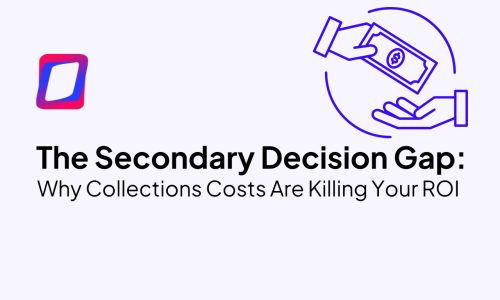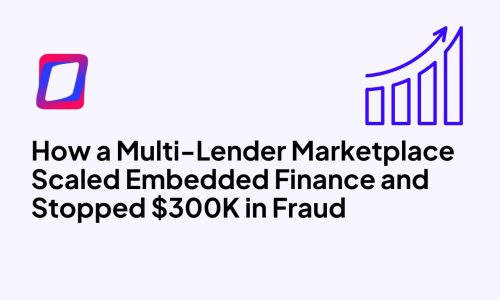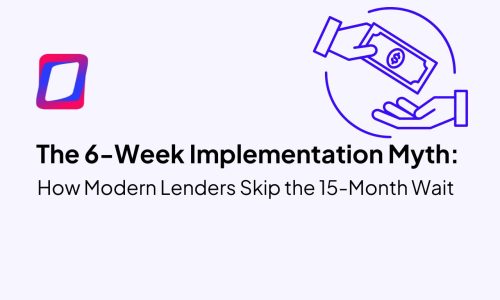Vergent’s CIO Unpacks the Future of FinTech: Adaptability and Innovation
Welcome to another special edition of The Lending Link LIVE, recorded during the 2024 Fintech Meetup in Las Vegas. Host Rich Alterman sat down with Brad Tompkins, the visionary Chief Information Officer of Vergent LMS, for a deep dive into the evolving world of financial technology.
Diving into the World of FinTech
At its core, Vergent LMS is not just about managing loans; it’s about transforming how lending works. Brad Tompkins shared with us how Vergent transcends traditional loan management by offering a holistic platform that covers every stage of the loan process. From generating leads to managing collections, Vergent equips non-depository lenders with cutting-edge, web-based software solutions tailor-made for fast-paced lending.
Adapting to Change: The Digital Shift in Lending Post-Pandemic
The pandemic ushered in a new era for digital lending, forcing the industry to evolve faster than ever before. Brad discussed how this period of challenge turned into an opportunity for innovation at Vergent, leading to the creation of solutions designed for both the immediate and long-term needs of consumers. By enhancing digital interactions, Vergent enables lenders to remain flexible and responsive, ensuring they navigate smoothly through the evolving dynamics of the financial industry.
Ensuring Flexibility and Compliance in Lending
Navigating the intricate maze of regulatory compliance is paramount in this industry. Vergent’s platform excels by providing unparalleled flexibility, equipping lenders with the capabilities to customize their services to align with regulatory frameworks without breaking a sweat. Brad emphasized the significance of Vergent’s sophisticated APIs and versatile structure, which facilitate rapid adaptation to new regulations, allowing lenders to operate smoothly and adhere to strict compliance protocols.
Don’t miss this enlightening conversation that unveils how Vergent LMS is not just adapting to the future of lending, but actively shaping it. Join us to learn more about how Vergent LMS is leading the way in making lending more flexible, customer-focused, and innovative.
Listen To The Episode on YouTube
About Vergent LMS
Providing the market’s most complete loan management software solution, Vergent LMS covers the complete loan lifecycle, spanning from origination to servicing, reporting, and more. Tailored to your industry and compatible with various loan products, Vergent LMS’s cloud-based SaaS technology solutions equip you with the essential tools to manage your lending business, efficiently and profitably.
Whether you need a proven loan origination solution, a servicing back end, or a complete end-to-end system, Vergent LMS provides the powerful capabilities and flexible omnichannel technology solutions to make any loan, anytime, anywhere.
About GDS Link
GDS Link is a global leader in credit risk management, providing tailored software solutions, analytical and consulting services. Our customer-centric risk management and process automation platforms are designed for the modern lender in their pursuit to capitalize on the entire credit lifecycle.
By providing a personal, consultative approach and leveraging our own industry-leading knowledge and expertise, GDS Link’s solutions and services deliver exceptional value and proven results to thousands of clients around the world.
About The Lending Link Podcast
The Lending Link Powered by GDS Link is a podcast hosted by Rich Alterman and designed for the modern-day lender. Each episode deeply delves into innovation within the financial services industry and transformation efforts, including AI / ML integration, Modeling, Risk Management Tactics, and redefining Customer Experiences.
GDS Link launched The Lending Link to explore unique strategies for the modern-day lender, dive into the innovative advancements GDS Link and our partners are currently developing and delivering, and gain insights from captivating guests within the FinTech, banking, and credit union worlds.
We have a wide range of guests from various lending institutions and diverse organizations who talk about strategies, technology, and everything in between.
Check Out Our LinkTree to listen to podcast episodes on your preferred platform.
Recent articles

The Secondary Decision Gap: Why Collections Costs Are Killing Your ROI
Read article
How a Multi-Lender Marketplace Scaled Embedded Finance and Stopped $300K in Fraud
Read article





